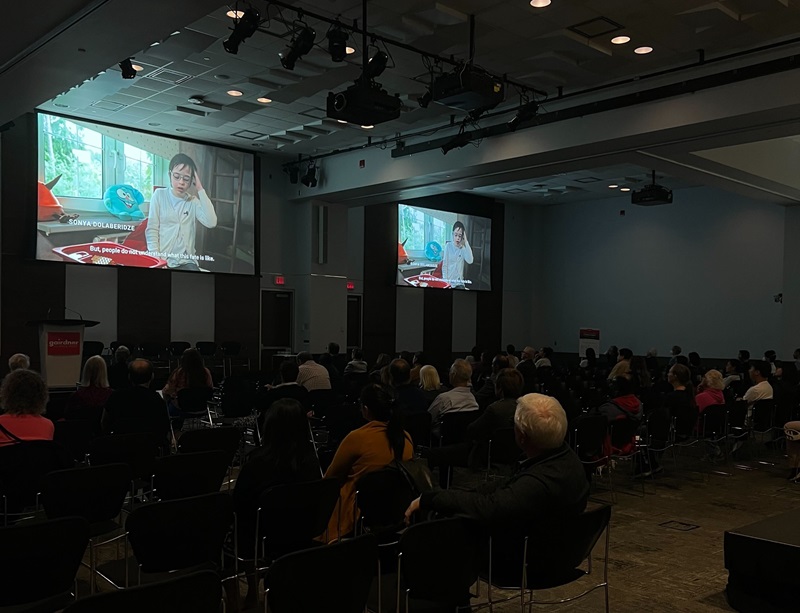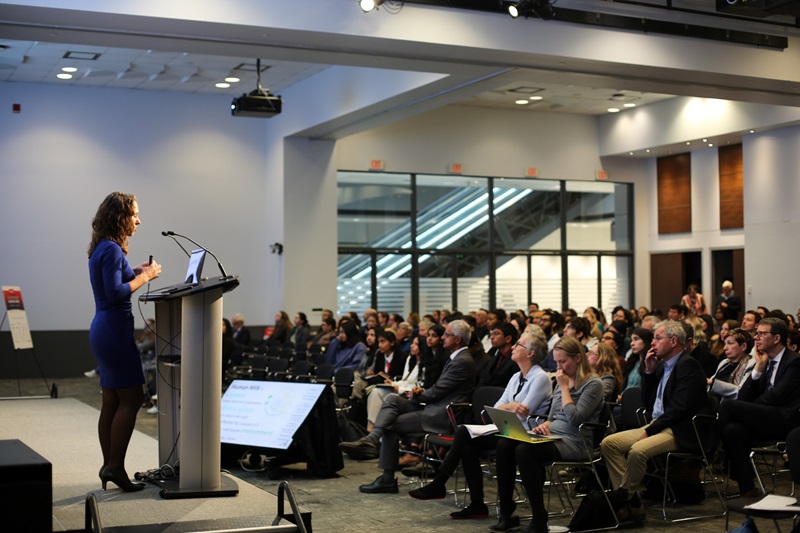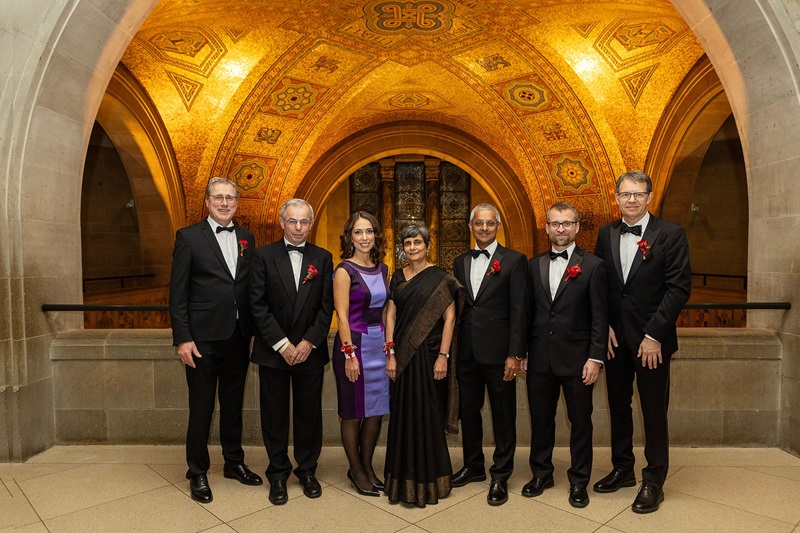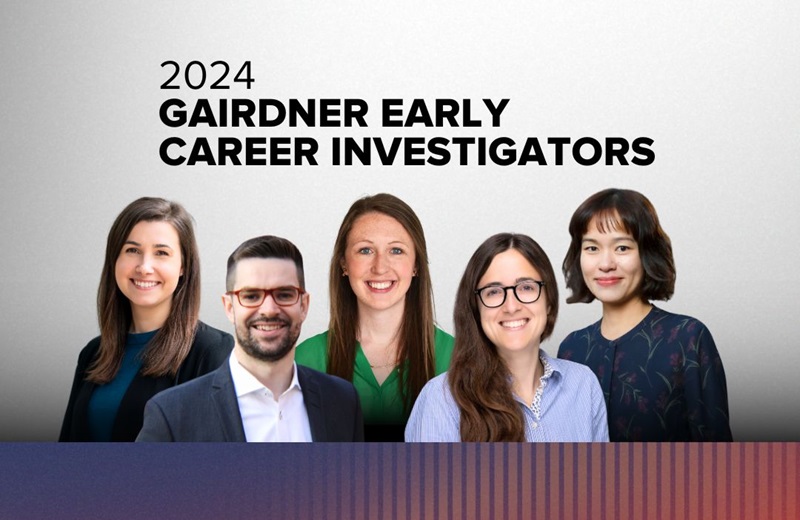Michel Sadelain
.tmb-cfthumb_fb.jpg?Culture=en&sfvrsn=dde8f19b_1)
Michel Sadelain, MD, PhD, is the Director of the Center for Cell Engineering and the incumbent of the Stephen and Barbara Friedman Chair at Memorial Sloan Kettering Cancer Center, where he is a Member of the Immunology Program and the Department of Medicine.
Dr. Sadelain has made seminal contributions to the discovery and clinical translation of CAR therapy. His research has primarily focused on human cell engineering and its potential to establish tumour immunity. His studies on receptor signalling led to the design of synthetic receptors for antigens, which he termed chimeric antigen receptors (CARs), the identification of CD19 as an effective CAR target in B cell malignancies and the clinical implementation of CD19 CAR therapy. His group was the first to publish dramatic molecular remissions in patients with chemorefractory acute lymphoblastic leukemia treated with CD19 CAR T cells.
Dr. Sadelain remains very engaged in CAR research, combining basic innovation and clinical relevance to pursue the goal of making CAR therapy more effective and more broadly applicable. His research draws on signalling, genome editing, epigenetic programming and pluripotent stem cells to create potent and safe CAR T cells for multiple cancers and other pathologies.
Dr. Sadelain is the recipient of the Coley Award for Distinguished Research in Tumor Immunology, the NYPLA Inventor of the Year award, the Passano, Gabbay, Pasteur-Weizman/Servier and Leopold Griffuel awards, the INSERM International Prize and the Breakthrough Prize for Life Sciences. He previously served as President of the American Society for Gene and Cell Therapy.
The Work:
Chimeric antigen receptor (CAR) T cell therapy is a type of cancer immunotherapy. It uses immune cells, called T cells, that are genetically altered in the lab to enable them to locate and destroy cancer cells.
Both Eshhar’s and Sadelain’s trailblazing research into CAR T cell engineering spans many decades. Their combined efforts defined the pathway for the future of cellular immunotherapy to treat cancer.
Eshhar has focused his career around the genetic engineering of T cells. These studies led him to predict that combining the killing machinery of cytotoxic T cells with an antibody’s specificity and high affinity to a target, would lead to new T cell-based therapies. He developed the first chimeric antigen receptor system in the 1980s and introduced it into T cells armed with an anti-tumour specificity. Eshhar went on to demonstrate the ability of such CAR T cells to successfully treat cancer in animal models. Sadelain began investigating what would eventually be referred to as CAR T cell therapy in the late 1980s, publishing his first abstract on successful T-cell engineering in 1992. Over the next decade, Sadelain and his team improved upon Eshhar’s design and by 2002 built the first truly effective CAR T cells, paving the way for their clinical use. Key to this breakthrough was the demonstration that CD19, a molecule on white blood cells, could serve as an effective target for CAR T cells in blood-borne cancers.
These second-generation CAR T cells were able to survive, proliferate and kill cancer cells in the lab, which established the feasibility and proof of concept for producing genetically instructed, targeted immune responses. In 2003, Sadelain and his colleagues published a seminal research paper showing that human CD19-directed CAR T cells could eradicate leukemia cells in a mouse model. Soon afterwards, clinical trials led by different groups, including Dr. Sadelain’s, demonstrated that the tumour burden in refractory chronic lymphocytic leukemia and adult and pediatric acute lymphoblastic leukemia could be successfully reduced and eventually become undetectable. The first CAR T cell therapies, targeting CD19, were approved by the U.S. Food and Drug Administration in 2017 for use in children and young adults with refractory acute leukemias and certain refractory lymphomas.
The Impact:
Currently, CAR T cell products have been approved worldwide for multiple indications, including large B-cell lymphoma, B-cell acute lymphoblastic leukemia, mantle cell lymphoma and follicular lymphoma. CAR T cell therapy has revolutionized the treatment landscape of relapsed and refractory B-cell malignancies. In contrast to conventional cytotoxic chemotherapy or immunotherapy with monoclonal antibodies, CAR T-cell therapy can induce durable and complete responses after a single treatment course. Such responses stem from the ability of CAR T cells to expand in vivo and persist for several months or years, which leads to continuous therapeutic efficacy and tumour control.
Efforts are underway to expand the repertoire of cancers that can be treated by CAR T cells through identifying new target antigens in solid tumours. The success of CAR T cells has also fueled interest in expanding their application beyond cancer. CAR T cells are demonstrating high response rates in autoimmune diseases and are being investigated as potential treatments for additional disorders, including fibrosis, senescence-associated pathologies and infectious diseases.

.tmb-cfthumb_fb.png?Culture=en&sfvrsn=374218_1)





.tmb-cfthumb_fb.png?Culture=en&sfvrsn=87d51a9d_1)
